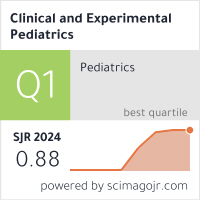|
|
Purpose : This study was designed to establish standard guidelines to meet the growing health care needs of adolescents by direct assessment of pediatricians' current practices, attitude and obstacles to the primary care of adolescents.
Methods : A questionnaire consisting of 9 questions, including personal characteristics of respondents, current health care practice of adolescents, attitude, obstacles to providing adolescent care, interest... |




